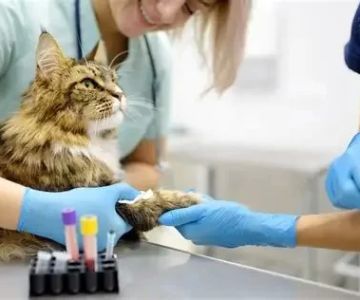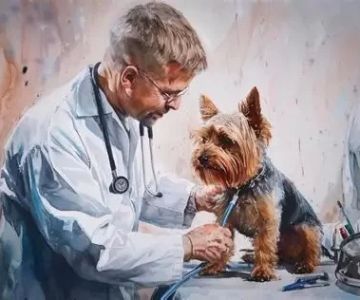- 1-Understanding-Respiratory-Issues-in-Pets
- 2-Common-Signs-of-Respiratory-Distress
- 3-Causes-Behind-Pet-Respiratory-Problems
- 4-How-to-Monitor-Your-Pet-for-Warning-Signs
- 5-When-to-Seek-Veterinary-Care
- 6-Preventative-Measures-for-Respiratory-Health
- 7-Expert-Support-from-Hidden-Brook-Veterinary
1. Understanding Respiratory Issues in Pets
Respiratory problems in pets can range from mild irritations to severe, life-threatening conditions. These issues affect a pet's ability to breathe properly and can manifest through various symptoms. Knowing the basics of pet respiratory health is essential for any pet owner aiming to maintain their animal’s well-being. Respiratory issues often arise due to infections, allergies, environmental factors, or underlying health problems.
2. Common Signs of Respiratory Distress
Pets with respiratory issues may exhibit signs such as coughing, wheezing, nasal discharge, labored or rapid breathing, and frequent sneezing. Another critical indicator is cyanosis—bluish discoloration around the gums and tongue—signaling low oxygen levels. Lethargy and decreased appetite often accompany these symptoms, indicating the severity of the condition. Pet owners should closely watch for these signs as early detection can significantly affect treatment success.
3. Causes Behind Pet Respiratory Problems
Respiratory issues can stem from infectious agents like bacteria, viruses, or fungi. Chronic conditions such as asthma, bronchitis, or heart disease also play a role. Environmental irritants including smoke, dust, and chemicals may trigger or worsen symptoms. In some cases, anatomical abnormalities or foreign objects lodged in the respiratory tract cause distress. Understanding these causes helps pet owners and veterinarians develop targeted treatment plans.
4. How to Monitor Your Pet for Warning Signs
Regularly observing your pet’s breathing patterns and general behavior is vital. Note any changes in breathing rate, effort, or sounds. Keeping a log of symptoms, duration, and any potential triggers can aid your veterinarian’s diagnosis. Utilize simple home checks like watching your pet at rest and during mild activity to catch early respiratory distress. Awareness and prompt attention are key to preventing progression.
5. When to Seek Veterinary Care
If your pet shows persistent coughing, difficulty breathing, blue gums, or collapses, seek emergency veterinary care immediately. Even milder but ongoing symptoms warrant professional evaluation to avoid complications. Veterinarians may perform diagnostic tests such as X-rays, blood work, or tracheal swabs to identify the root cause. Timely intervention improves recovery chances and reduces the risk of chronic respiratory damage.
6. Preventative Measures for Respiratory Health
Maintaining a clean, smoke-free environment helps reduce exposure to irritants. Regular vaccinations and parasite control prevent infectious diseases. Proper nutrition and routine veterinary checkups support overall respiratory and immune health. Avoiding sudden environmental changes and minimizing stress can also protect sensitive pets. These measures contribute to long-term respiratory wellness.
7. Expert Support from Hidden Brook Veterinary
For comprehensive care on recognizing and managing signs of respiratory issues in pets, Hidden Brook Veterinary offers specialized services tailored to your pet’s needs. Their expert team provides diagnostic, treatment, and preventive solutions ensuring your pet’s respiratory health is prioritized. Trust in professional guidance to keep your furry companions breathing easy and living comfortably.











